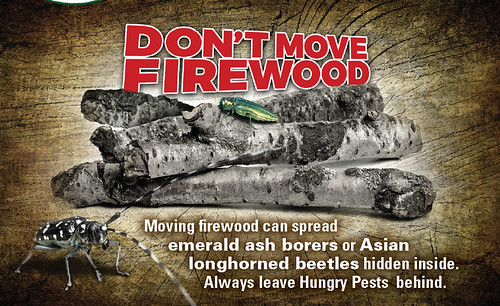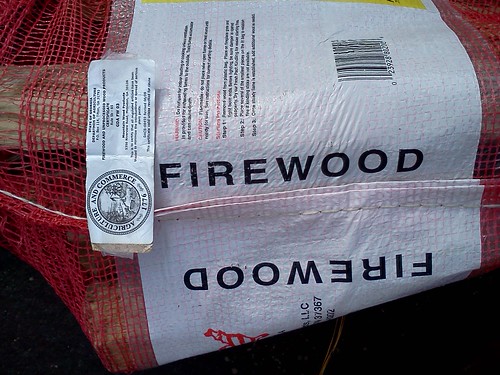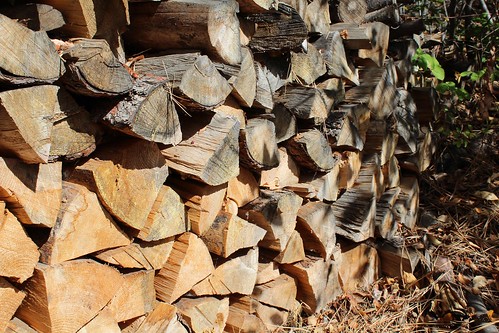
Wood boring insect pests can continue their development deep within cut wood. They can emerge from wood left to sit outside to infest new areas.
This October, the Nature Conservancy’s Don’t Move Firewood campaign and Hungry Pests, an initiative from APHIS, are partnering to present the first-ever Firewood Awareness Month. The cooler nights and quickly approaching fall season brings an increase in RV camping, hunting, and home heating. Firewood Awareness Month looks to raise public awareness about the potential danger of firewood movement as a pest and disease pathway at this high-risk time of year.
Tree-killing invasive insects and diseases can lurk both inside, and on the surface, of firewood. While these insects and diseases don’t travel far on their own, transporting firewood allows them to move hundreds of miles and start infestations in new places, explains APHIS Deputy Administrator Osama El-Lissy.
Pest infestations can impact our forests by killing trees there as well as in our parks and communities. Infestations are also costly to control or eradicate.
Everyone’s firewood choices matter, says Leigh Greenwood, The Nature Conservancy’s Don’t Move Firewood campaign manager. When it comes to protecting our campsites, wildlife habitats, neighborhood trees, and other favorite places, we all have a personal responsibility to slow the spread of forest pests. Firewood Awareness Month serves as the perfect opportunity to inform the public on the different ways they can help protect the places they love.

Firewood that has been heat treated is often sold bagged, boxed, or wrapped. Look for a state or federal seal to certify it was properly treated. Photo credit: L. Greenwood, Don’t Move Firewood campaign, The Nature Conservancy
This Firewood Awareness Month, everyone can help protect the places they love from the spread of damaging forest pests by making one of these three safe firewood choices:
- Buy firewood near where you’ll burn it
- Buy certified heat treated firewood (look for a state or federal seal)
- Gather firewood on site when permitted
Anyone who will travel from one location to another, including campers, anglers, hunters, and RV owners, should not carry firewood—unless it is heat-treated and certified—to their destination. This can spread forest pests and may also violate state and federal laws, depending on the region. Plan to gather firewood on site if permitted or purchase firewood near your camping destination.
People who use wood to heat their homes or cabins can help by harvesting firewood locally or by purchasing firewood from a reputable dealer who is in compliance with state or regional firewood regulations. Some operations may be unaware of quarantine and movement restrictions, resulting in the unintentional and illegal movement of tree-killing pests.
Tourists, too, can help protect the places they love against the spread of pests. As thousands of “leaf peeping” fall foliage enthusiasts travel to view the changing leaves around the country, they should purchase firewood locally, buy certified heat treated firewood, or gather on site if allowed.
Get state specific firewood regulations and recommendations at Dontmovefirewood.org/map. Visitwww.DontMoveFirewood.org or www.HungryPests.com to learn how to help stop the spread of invasive pests and report signs of them to the proper authorities, and use #firewoodmonth to join the conversation on Facebook and Twitter.

When buying firewood for home heating, use a reputable dealer in compliance with local regulations. Photo credit: L. Greenwood, Don’t Move Firewood campaign, The Nature Conservancy
No comments:
Post a Comment
Note: Only a member of this blog may post a comment.